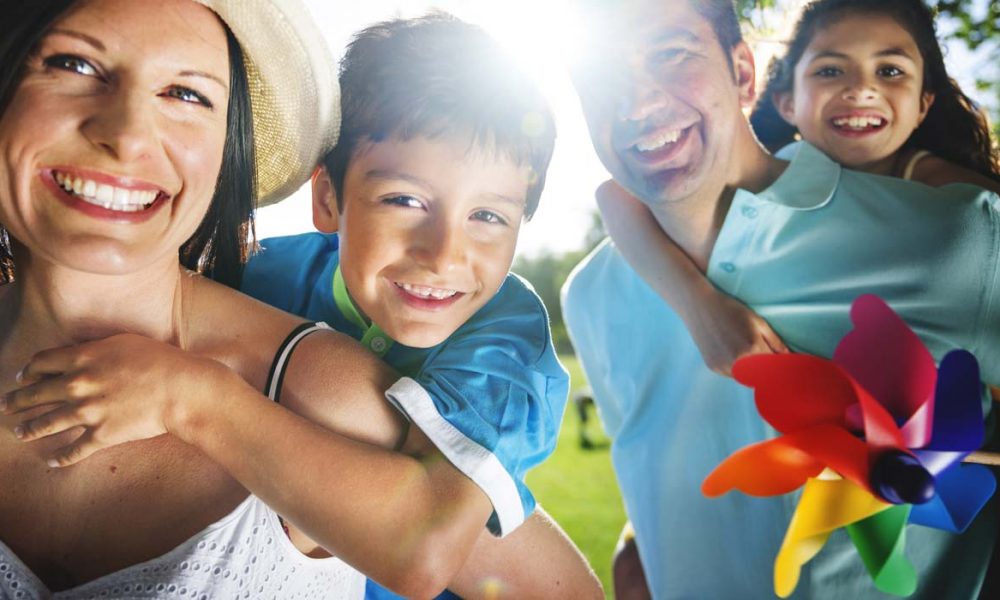Summer is about to begin in earnest. Those adults who have children in their lives likely have a checklist of summer necessities to keep kids healthy. Sunscreen, bug spray, water bottles, Band-Aids, and other such necessities will help kids stay physically healthy and well through the summer. What about a checklist for kids’ mental health this summer? What’s necessary to help kids be mentally healthy during the summer months?
When we care for our children (whether they’re our own offspring or someone else’s), it’s natural to want them to thrive. “Have a great summer” can take on a new level of meaning, and there can be a great deal of pressure behind that command-style wish. There are certain things all children need in order to experience mental health and well-being and thus have a great summer. Think of the following list as a checklist for a mentally healthy summer.
Kids Need a Sense of Belonging in the Summer to Enhance Mental Health
Psychologists such as Abraham Maslow, William Glasser, and more have demonstrated through copious amounts of research that a basic human need is love and belonging. It’s essential for mental health and well-being. For most of the year, school is a major source of belonging for kids of all ages. While kids don’t feel close to everyone at school (and there are some people they’d love to get far away from), school in general provides an important sense of belonging and human connection. When the doors close for the summer, some kids can have a hard time adjusting to a sudden void in their network of connections. Tips to help children adjust and maintain a sense of belonging:
- Help them know that if they’re feeling lonely or down, they’re not alone. It’s normal to need some time to adjust to a change, even a good change.
- Plan some special activities together. A picnic in a park, a game of catch in the backyard, a night of stargazing—anything that allows your child to connect with you is excellent.
- Allow your child to have friends over, go to friends’ houses, and otherwise connect with kids of the same age. For optimum mental health, kids need connections with peers. It fulfills the need for belonging, and it creates a support network that contributes to the development of resilience.
A Sense of Purpose Gives Kids a Mental Health Boost Throughout the Summer
As much as kids grumble about homework or their classes in school, these things are actually very good for them in a number of ways. Academics aside, school helps kids develop a sense of purpose. A universal question, worded differently across the life span, is why am I here? We answer that question by discovering a sense of purpose. School-age kids need to feel a drive, a motivation, a sense of purpose in order to be mentally healthy. Sometimes, the summer months can contribute to feelings of depression or anxiety because of their lackadaisical days. To help kids maintain a sense of purpose, and thus mental wellness, consider these ideas:
- Let them help decide and plan activities (with age-appropriate limitations, of course). Allow them to brainstorm things to do, and have them make the plans for it. This can apply to the lunch menu or to a weekend outing. Kids thrive when they are allowed to have some responsibility for what the family does.
- Give them age-appropriate chores. Sure, they’ll likely grumble, but behind the rolled eyes is a kid who is developing a sense of purpose, a sense that there are things to do during the summer and that they can contribute to getting them done. That develops self-confidence, an important component of mental health.
Summer Fun is Essential to Kids’ Mental Health
Like belonging and a sense of purpose, fun is actually essential to mental health and well-being. Experiencing fun reduces stress, anxiety, and depression, and it increases our connection to others. For kids who are out of school, away from their normal routine, network of supportive adults, and peers, summer vacation can become a drag. Kids can become listless and apathetic or irritable and prone to getting into trouble. Introduce fun for a mentally healthy summer. Fun is a balancing act. Kids need structured fun, such as involvement in sports, clubs, classes, and camps. Structure provides routine and a sense of safety. Too much structure, though, can be stifling and stressful, even contributing to anxiety. Kids also need unscheduled time for free-play to enhance their mental health. To find this balance,
- Decide how much you can spend on structured activities, and research what is available in your area. The older your child is, the more input she can have in this process (other than the budget, of course). Let her help you choose one or a few structured activities
- Put together a kit or box for free-time. Again, let your child contribute. Being set loose for free-time can be overwhelming for kids, resulting in the complaint that there’s nothing to do. Having things on hand for your child to do is helpful in getting them into the fun.
You might have noticed that belonging, purpose, and fun are interconnected. They exist together, contributing to each other positively. Together, belonging, purpose, and fun help your child have a mentally healthy summer.
Children, like adults, are complete and complex creatures. Their skin must be protected from the sun’s rays. Their bodies must be properly nourished and hydrated. And their mental health needs to be cared for as well to help them thrive through the summer and well into next school year.





No comments